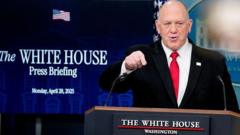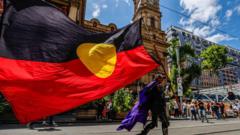**The article explores how Trump and his hard-line policies resonate with various nationalist parties across Europe, highlighting the differences and similarities among them.**
**Trump's Global Influence: The Rise of Hard-Line Conservative Populism**

**Trump's Global Influence: The Rise of Hard-Line Conservative Populism**
**As President Trump begins his second term, he rallies hard-right nationalist movements worldwide, deepening divides in global politics.**
In the early stages of his second term, President Trump stands at the forefront of a burgeoning global movement characterized by hard-line conservative populism, igniting a wave of nationalist sentiments in the European Union and beyond. This coalition of political entities typically aligns on several key issues: stringent anti-immigration policies, advocacy for traditional values opposing LGBTQ+ rights, skepticism towards climate change initiatives, and vocal criticism of established political frameworks and figures.
These various parties, while sharing commonalities, diverge significantly in their ideologies and strategies. The Alternatives for Germany (AfD) strive to expand their base ahead of impending elections while continuing to flirt with controversial historical narratives. Meanwhile, Italy's Brothers party, stemming from a post-Fascist heritage, has softened its stance since gaining power. In France, the National Rally has made considerable electoral gains following efforts to rebrand itself, and Austria's Freedom Party, with a legacy linking back to former Nazi military, adopts an aggressive approach that proved successful in previous elections.
A closer examination reveals that President Trump’s rhetoric is situated at the extreme end of the conservative spectrum, marked by overtly racist and inflammatory remarks aimed at immigrants and adversaries. His audacious commitments, such as the radical proposal to deport millions of undocumented immigrants, surpass the hesitant inclinations observed among many of his European counterparts, who have not ventured as far in making such bold promises.
This complex interplay of ideologies illustrates not just a convergence of political agendas but also highlights the critical distinctions shaping the present and future of global governance and democratic institutions.
These various parties, while sharing commonalities, diverge significantly in their ideologies and strategies. The Alternatives for Germany (AfD) strive to expand their base ahead of impending elections while continuing to flirt with controversial historical narratives. Meanwhile, Italy's Brothers party, stemming from a post-Fascist heritage, has softened its stance since gaining power. In France, the National Rally has made considerable electoral gains following efforts to rebrand itself, and Austria's Freedom Party, with a legacy linking back to former Nazi military, adopts an aggressive approach that proved successful in previous elections.
A closer examination reveals that President Trump’s rhetoric is situated at the extreme end of the conservative spectrum, marked by overtly racist and inflammatory remarks aimed at immigrants and adversaries. His audacious commitments, such as the radical proposal to deport millions of undocumented immigrants, surpass the hesitant inclinations observed among many of his European counterparts, who have not ventured as far in making such bold promises.
This complex interplay of ideologies illustrates not just a convergence of political agendas but also highlights the critical distinctions shaping the present and future of global governance and democratic institutions.





















